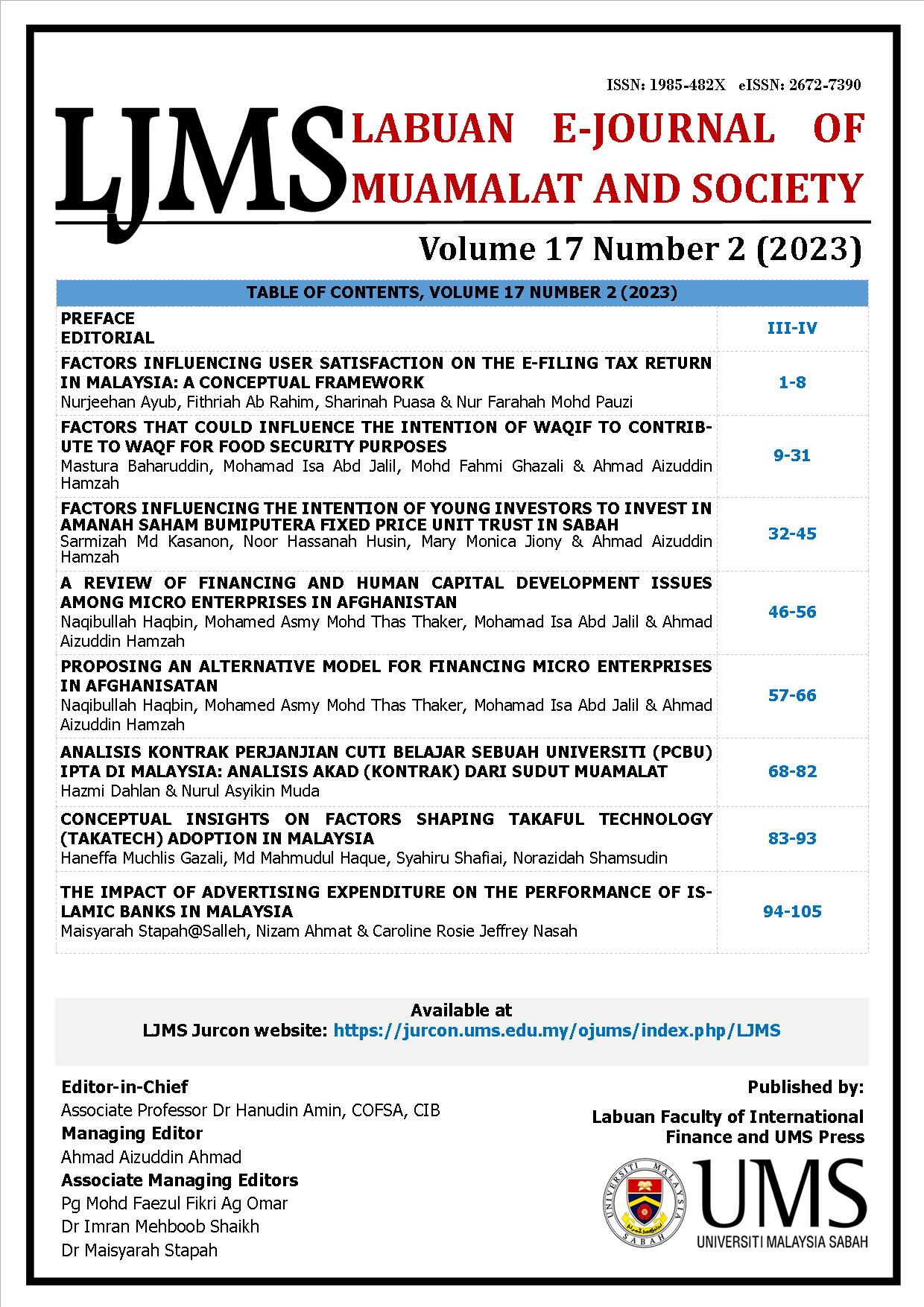FACTORS THAT COULD INFLUENCE THE INTENTION OF WAQIF TO CONTRIBUTE TO WAQF FOR FOOD SECURITY PURPOSES
Keywords:
Islamic Finance, Waqf, Food Security, Intention, MalaysiaAbstract
The increase in the population in developing countries, specifically Malaysia, poses a threat to food security. This study’s interest lies in observing the prospects for food security of rice as Malaysia’s staple food. Malaysia has been producing insufficient rice for ten years and over a quarter of the needs of rice in Malaysia is fulfilled by imported rice. Few studies have recommended widely implementing waqf for food security purposes in Malaysia. Thus, this study aims to determine the factors that could influence the intention of waqif to contribute in waqf for food security purposes. This study is deductive research and quantitative research. The finding shows that moral norms, personal responsibility, social norms, and normative beliefs have influenced the intention of waqif to contribute to waqf. This study aims to add literature on the factors that could influence waqif’s intention to contribute to waqf for food security purposes in Malaysia. One of the research limitations in this study pertained to the geographical coverage of the respondents, as they were not representative of all the states in Malaysia. This limitation was primarily attributed to the resource-intensive nature of time and expenses.








